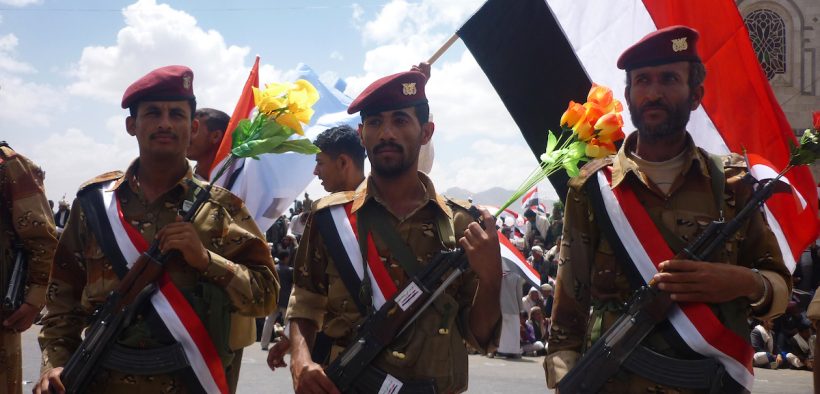Yemeni Government Troops Force Separatists out of Key Southern Yemeni City

Thursday’s fighting in Yemen constituted the latest spate of violence between Saudi Arabia-backed government-loyal troops and the militias linked with the Southern Transitional Council.
Saudi Arabian-backed Yemeni forces belonging to the internationally recognized government of President Abd-Rabbur Hadi have reportedly taken control of Ataq, a strategically significant city in Southern Yemen after a series of clashes that broke out Thursday night and lasted until early Friday.
The United Arab Emirates-backed Southern Transitional Council (STC) militia had controlled key areas in southern Yemen since early this month.
According to the English-language Aljazeera website, there were many casualties on each side in Ataq, the capital of the southern oil-rich Shabwa province.
The Arabic-language Al Arabiya news website reported that clashes were intense around the city’s Saba phone company, and that ambulances couldn’t reach casualties late on Thursday night.
Yemeni Minister of Transport, Saleh al-Gabwani, tweeted on Thursday night “the government forces have been in control of the situation in Ataq. The separatist fighters have not taken over the streets of buildings.”
Trading Accusations
Thursday’s fighting constituted the latest spate of violence between government-loyal troops and the militias, linked with the STC, which has reportedly received training from the United Arab Emirates.
A spokesperson for the Hadi government, Rajeh Badi, accused Abu Dhabi of having been responsible for Thursday’s attempt by the separatists to take over Ataq.
The STC, which has long sought self-rule in the south, accused the Hadi government of being complicit in an attack carried out by the rebel Houthi group on southern forces in July. The two sides were a part of a Saudi-led coalition against the Houthi rebels in the north of Yemen, but the STC turned on government forces after it accused the accusation against the government.
In June the UAE scaled down its presence in Yemen, while continuing to back thousands of fighters aligned with the STC. Saudi Arabia called for dialogue to end the standoff, but the Hadi government refused to take part unless the separatists renounce control over sites they have seized.
The UN Response
In response to the current situation, the U.N. Security Council released a statement last week noting that the STC demanded that it should be involved in any U.N.-sponsored talks on Yemen’s future.
The U.N. envoy to Yemen, Martin Griffiths, told the Security Council on Tuesday that there is no time to lose in mediating a peace deal that would bring the fighting to a halt.
“The fragmentation of Yemen is becoming a stronger and more pressing threat,” the British diplomat said via video link from Jordan. “The stakes are becoming too high for the future of Yemen, the Yemeni people and, indeed, the wider region. Yemen cannot wait,” Griffiths said.
The United Nations describes the situation in Yemen as the world’s worst humanitarian crisis. With 24.1 million residents more than two-thirds of them are in need of humanitarian assistance in the form of food and medicine.
Root Causes
Over the past four years, Yemen has been hit by a civil war, after Houthi rebels engaged in a fight with the Yemeni authorities. Authorities in Yemen accuse the Houthi militias of attempting to destabilize the country, with backing from Iran.
The Yemen War led to the end of the 32-year regime of Ali Abdullah Saleh, the late Yemeni president. The conflict has also caused the deaths and injuries of many thousands of civilians, including women and children.
Human rights groups allege the Saudi coalition has created a humanitarian crisis in Yemen evidenced by famine and widespread disease. Others maintain the Saudi coalition has bombed civilian targets, including a displaced persons camp and a dairy. More than 1 million people have left Yemen to find refuge in other countries.







